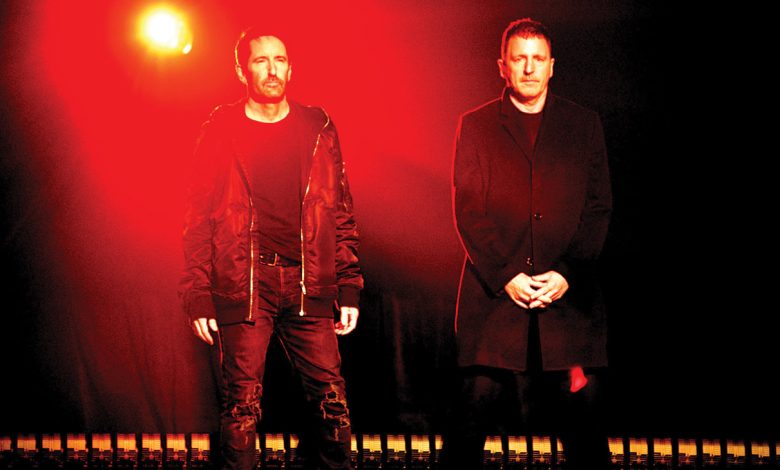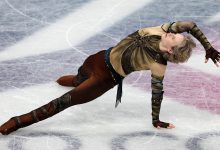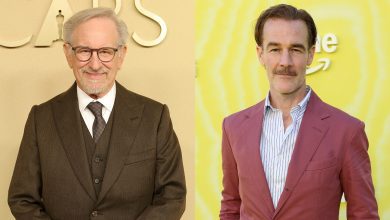Trent Reznor & Atticus Ross on Creating Score

“It might sound corny,” says Trent Reznor, “but we’re still in awe of how powerful music can make you feel. Writing a song, you put something out and maybe someone hears it and has a reaction to it or not. You can play it live and see something happen. But with film, being able to see experiences, sequences, scenes and know that you have the power to radically change how someone can feel is an awe-inspiring feeling for us.”
It’s been almost 15 years since Reznor — the mastermind behind industrial music pioneers and Rock and Roll Hall of Famers Nine Inch Nails — and his bandmate and longtime creative partner Atticus Ross composed their first film score, for David Fincher’s The Social Network, which won them their first Academy Award. Since then, they have scored almost 20 movies and TV projects, picking up another Oscar for Soul in 2020 and an Emmy that same year for their work on HBO’s Watchmen.
Becoming a fixture in Hollywood has been an unexpected second act for Reznor, notorious in his younger days for experimental, sometimes brutal sounds and explicit, disturbing music videos, as well as for provocations like moving into the mansion where the Manson Family committed the Tate-LaBianca murders. Known for his uncompromising vision, Reznor was a top executive during the launch of Apple Music but left, saying the work “felt at odds with the artist in me.” But the shift to film, which he says was “terrifying” at first, proved to be a way to keep his creative spark alive.
“Over the last 10 years or so, I’ve been a bit disillusioned by popular music,” says Reznor. “As I get older, some things feel less relatable to me. The business sucks. The way people consume music is not as inspiring as it used to be, it’s marginalized in a lot of ways. Scoring has provided a way for me to feel vital, to feel challenged.”
The electronic-based music that Reznor and Ross wrote and recorded for Luca Guadagnino’s Challengers — a love triangle starring Zendaya, Mike Faist and Josh O’Connor set in the world of professional tennis — has already earned them a Grammy nomination. They had previously worked with the director on 2022’s Bones and All, sparking a friendship that led them all to assume the partnership would endure.
“The process of doing Bones and All was so beautiful,” says Guadagnino, “and the conversations with Trent and Atticus were so inspiring, there wasn’t the need for a reason other than wanting to continue our collaboration.” (The pair also scored Guadagnino’s Queer this season.)
When the director proposed the project to the composers, he had a very specific, if unexpected, target. “He said, ‘What I think would be cool is aggressive, in-your-face techno — I want the music to be a character in the film,’ ” says Reznor. “I don’t think we instinctually would have wound up there as a starting point, but given that, we went off on a mission and started creating some stuff.”
A dark romance set in the sports world may not immediately seem to fit with beats ready for a dance club. And while you might think the assignment would come easier for the pair than their other, more acoustic-based or abstract scores, as Reznor and Ross worked in a mobile studio in their hotel rooms during a Nine Inch Nails tour, they found that the genre’s sound and structure created certain technical challenges.
Reznor and Ross scored both Challengers, starring Mike Faist and Zendaya Niko Tavernise/Amazon MGM Studios
“Luca said that he wanted people to be dancing to this film,” says Ross. “What that doesn’t afford you, which you might have in a normal score, is to be able to have a bar of seven [beats] or to change tempo. And for this style of music to work, you can’t have it quiet — so it’s interesting to have a bedroom scene with the music as loud as the dialogue.”
They weren’t sure how Guadagnino would respond when he saw the real impact their front-and-center score was making. “It was significantly altering the DNA of the film,” says Reznor. But the director reacted positively, he recalls.
“I went to their studio in Los Angeles, and they played the first scene, and it was incredible,” says Guadagnino. “They went way beyond my wildest expectations. They gave depth to it in a way I knew they were going to, but the blast of it was so intense when I heard it that first time.”
If the Challengers score creates an unexpected counterpoint to the more intimate scenes, it also cranks up the energy and tension when the story moves to the tennis court. The throbbing beats bang up against the high-speed back-and-forth of the matches, pumping up the action — and the emotional stakes — with frantic rhythms rather than conventional sports-movie melodrama.
“That brought a little fun to the tennis scenes, because it’s always extremely hard to make it look realistic with actors in a movie,” says ESPN tennis commentator and former star player Patrick McEnroe. “Just watching a tennis match without any sound — obviously I do that for a living, but if you’re making a major motion picture, you’re trying to amp it up a little bit. The music wasn’t like dramatic, sports-type music, and I think that helped the overall vibe of the tennis scenes. Considering the angle they were going for, they did a pretty damn good job.”
Ross notes that the intention of the score was to focus on competition that’s more personal than athletic. “When people say it’s a tennis film with dance music, it bums me out a little bit,” he says. “I don’t think Luca was making a film about tennis. I think tennis was a backdrop to a complex series of relationships and a study in how three people interact. The music is important to tell that story — it’s a vessel that carries some fairly intricate themes that weave through the film.”
Says Reznor, “Challengers was a lesson to me that music like this could be featured this way — and also be intelligent and tell a story very effectively and deceptively — in a film that’s fun and mainstream-ish, and challenging and subversive. And that ticks a lot of boxes of things that resonate with me.”
Reznor and Ross were taken aback when they were reminded how long they’ve been working in film. British-born Ross joined Reznor’s side project Tapeworm in 2002 but began scoring for television alongside his brother Leopold in 2004.
It was a different sort of transition for Reznor, though, when the duo took on The Social Network.
During the “crash course” collaboration with Fincher, the pair could feel a new yet familiar approach emerging. “We could still be us,” says Reznor, “and we could still apply the same things we would do writing a song, just shifting around how we look at it — where the script and the vision of the director and the scene and setting are the lyrics, and we could take our arrangement skills and the same things that we tap into emotionally in Nine Inch Nails into another setting. But it took a minute for us to understand that, a few months of waking up at 4 in the morning and sweating about, ‘What did we get ourselves into?’ “
Since then, the pair has worked with everyone from Pixar to the Teenage Mutant Ninja Turtles, called on by directors like Sam Mendes and Ken Burns. “We’ve had the good fortune to have worked with a number of directors where it really does feel like a collaboration,” says Ross. “It doesn’t feel like we’re just here to do the music — we’re part of a team, and we’re in service to this big vision.”
But after having focused so furiously on film work in recent years (they’ve had seven movie scores come out since the last Nine Inch Nails album), they are eager to get back to making music of their own.
“We’re taking the inspiration we’ve garnered and funneling it into a Nine Inch Nails project, which we’re working on now,” says Reznor. “We’re ready to be back in the driver’s seat.”
Source: Hollywoodreporter
Related Posts
- Roundball Rocked: With NBA Return Looming, NBC Purges Scripted Roster
- SoundCloud Says It “Has Never Used Artist Content to Train AI Models” After Backlash on Terms of Service Change
- Fox News’ Camryn Kinsey Is “Doing Well” After Fainting on Live TV
- Kerry Washington and Jahleel Kamera in 'Shadow Force.'
Courtesy of Lionsgate
…
- This Alternative Artist Landed a Top-20 Chart Debut With an Album Made Almost Entirely on His Phone





